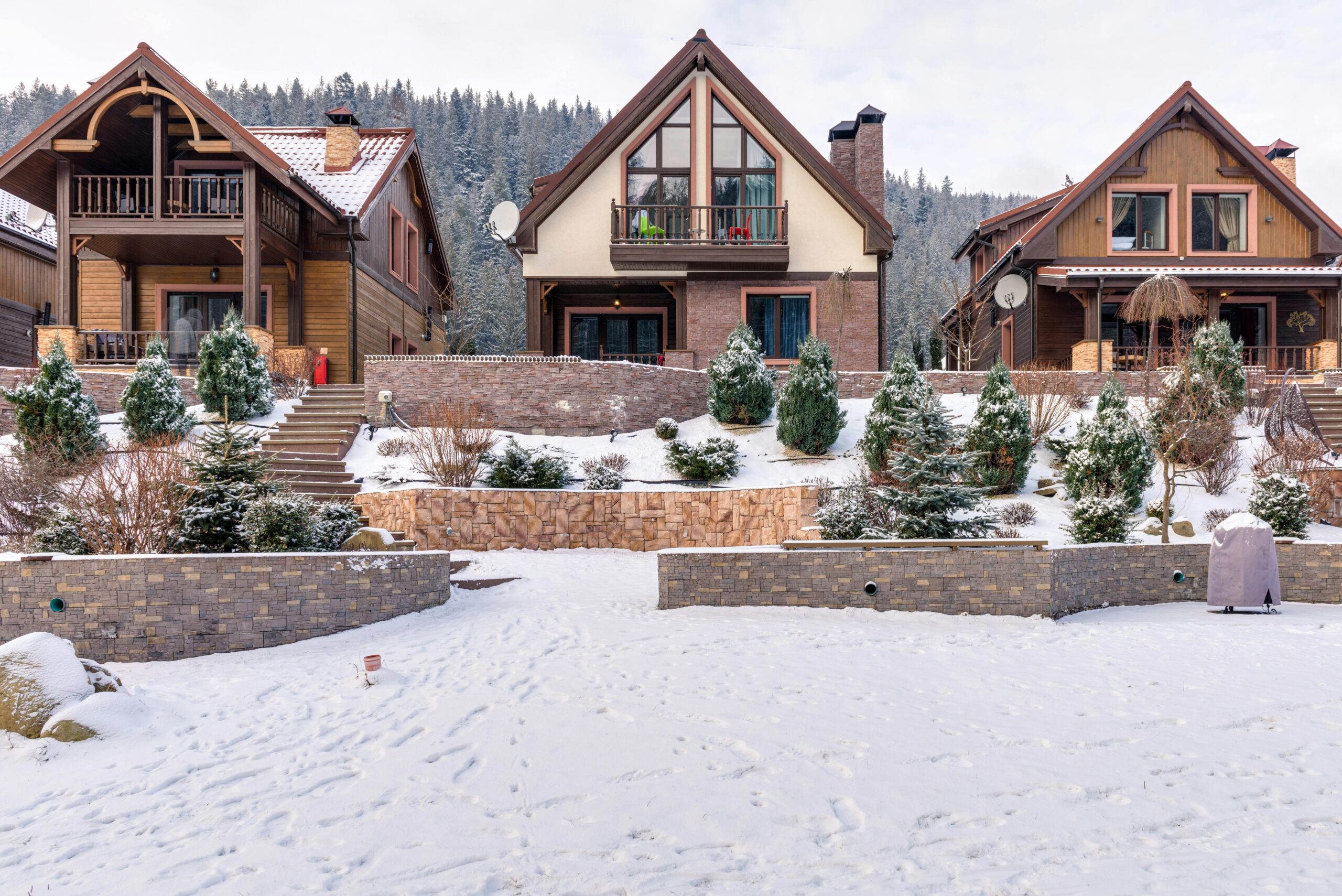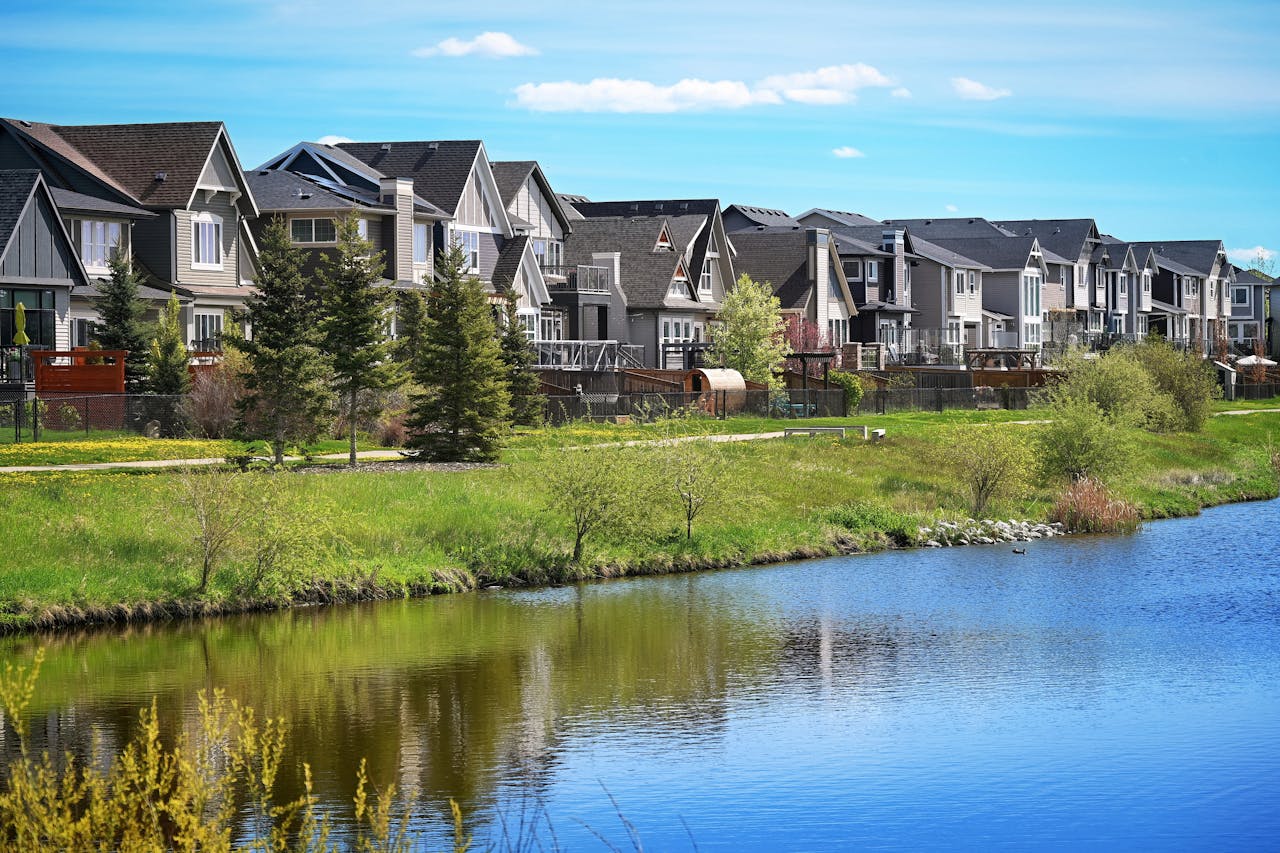In the pursuit of homeownership, one of the fundamental decisions you’ll face is whether to invest in a newly built home or opt for an existing home with its own unique charm. The choice between a newly built property and a pre-owned home comes with its own set of considerations, each presenting a distinctive set of advantages and drawbacks.
This article will walk you through the important factors to consider as you decide whats best for you, your lifestyle, and your future plans. So, let’s explore this classic dilemma together and find the perfect fit for your lifestyle and preferences!
Pros of Buying an Existing Home
Quick Move-In and Spacious Living
- Immediate Occupancy:
Purchasing an existing home allows for quick move-in, eliminating the wait associated with new builds.
- More Land:
Older homes often come with more extensive plots, offering additional space such as a spacious backyard or an extra bedroom.
- Craftsmanship:
Decades-old homes may feature superior craftsmanship, showcasing the durability and quality of construction methods from that era.
Location and Community Considerations
- Better Location:
Existing homes may be situated in established neighborhoods with better amenities, shorter commute times, and access to quality schools. - Community Development:
Older neighborhoods are less prone to ongoing construction, providing a stable and well-developed community atmosphere. - Amenities and Quality Schools:
Existing communities often offer mature amenities, well-established infrastructure, and access to reputable schools compared to new developments.
Click here to learn if, ‘Buying A Home Will Help Your Credit Score’
Cons of Buying an Existing Home
- Maintenance Costs:
Statistics show that homeowners spend, on average, 1-4% of their home’s value annually on maintenance and repairs (U.S. Census Bureau). Unexpected issues can arise, leading to additional expenses beyond routine upkeep. - Depreciation Over Time:
According to a study by Taylor and Francis Online, the value of older homes tends to depreciate, impacting their resale value. They quote that ‘the depreciation for an average property is approximately 2% per year, and a poorly maintained property has a depreciation factor of approximately 3% per year.’
The factors that affect this include the building’s age, outdated features, or changing neighborhood dynamics, which may contribute to a decline in property value. - Limited Customization:
Existing homes may have design limitations, and significant renovations can be expensive. According to a survey by the National Association of Realtors, 35% of homebuyers cited the need for renovations as a primary reason for purchasing a new home rather than an existing one.
While buying a home offers several advantages, considering these disadvantages is crucial for making an informed decision, balancing the benefits and potential drawbacks.
Pros of Buying A Newly Built Home
Customization and Modern Design
- Personalization Options:
Buying a new home allows for customization, enabling buyers to choose finishes, layouts, and even architectural styles. According to the National Association of Home Builders (NAHB), 70% of new home buyers find the ability to customize their homes appealing.
2. Contemporary Features:
New homes often feature modern layouts, open floor plans, and high ceilings, catering to current design trends. This appeals to homebuyers seeking a fresh and contemporary living experience.
Warranty Protection and Reduced Maintenance
Lower Maintenance Costs:
New homes require fewer immediate repairs and maintenance tasks than older homes. With modern construction materials and up-to-date systems, newly built homes often boast a higher level of durability and efficiency, reducing the need for frequent fixes and contributing to long-term savings on maintenance expenses.
Up-to-Date Safety Standards
- Modern Safety Features:
New homes adhere to the latest building codes and safety standards. This includes advanced fire safety measures, secure electrical systems, and durable construction materials. - Reduced Health Risks:
According to the Environmental Protection Agency (EPA), newer homes are less likely to have issues like lead-based paint or asbestos, contributing to a healthier living environment.
Find out if ‘Buying A Home in Canada is a Good Investment’ by clicking here
Modern Comforts and Warranty Coverage
- Brand-New Appliances and Features:
New homes offer the latest in modern amenities, including state-of-the-art appliances, cutting-edge fixtures, and contemporary designs. This ensures a high level of comfort and convenience for homeowners. - Comprehensive Warranty Coverage:
Homebuyers benefit from comprehensive warranty coverage, addressing concerns about various home components. This includes protection against appliance malfunctions, roofing problems, or structural issues. According to the Federal Trade Commission, most new home builders provide a builders warranty so that homeowners can take advantage of it.
Energy Efficiency and Customization
- Lower Utility Costs:
Energy-efficient designs in new builds contribute to lower heating and cooling costs. By incorporating the latest technologies, such as advanced insulation and high-performance windows, newly constructed homes provide a more comfortable living environment and result in substantial savings on monthly utility bills, aligning with the growing emphasis on sustainable and cost-effective homeownership. - Personalized Touches:
Early involvement in pre-construction allows buyers to incorporate personal touches, choose custom floorplans, and add unique features. This level of customization ensures that the home aligns perfectly with the homeowner’s preferences and lifestyle.
Financial Flexibility and Price Appreciation
- Flexible Payment Options:
Purchasing a new home often comes with financial flexibility, with options to pay over time. This can ease the immediate financial burden on homebuyers. - Reduced Pricing Uncertainty:
New builds can offer reduced uncertainty in pricing compared to bidding wars in the resale market. Fixed prices and transparent contracts provide a clearer understanding of the total investment. - Potential for Price Appreciation:
According to Canadian Newswire, homes are expected to experience price appreciation in 2024. Investing in a new home can increase property value as overall real estate prices rise.
While the advantages of buying a new home are compelling, homebuyers need to assess their priorities and preferences to make an informed decision based on their unique needs.
Click here to learn if, ‘Buying A Home Will Help Your Credit Score’
Final Take Away
In the journey of deciding between a newly built home and existing home, understanding the nuances is pivotal.
New homes bring cutting-edge technology, customization options, and energy efficiency but have a higher initial cost and potential construction delays. On the other hand, existing homes offer immediate occupancy, mature landscaping, and unique craftsmanship but may require more maintenance.
We invite you to download our Calgary Home Buying Glossary Guide, to help you navigate the complex language of realtors in the home buying process. It will breaksdown real estate jargon and empower you to make confident decisions in your homebuying process.
Arm yourself with knowledge and embark on a smoother, more informed homeownership journey. Click the link below to access your free guide:
Download the Calgary Home Buying Glossary Guide
May your homebuying adventure be as exciting as your new living space!





